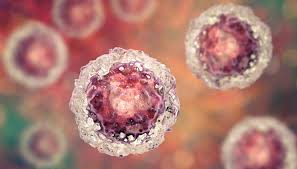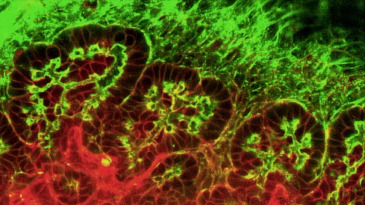Many epithelial organs undergo branching morphogenesis during development, resulting in the construction of complex dendritic networks and the acquisition of specialized tissue structures. Understanding the establishment and maintenance of organizational structure is a core issue in developmental biology, which directly impacts organ physiology and diseases. In adult life, the loss of organizational structure may occur in the early stages and various human cancers. However how these processes are coordinated and…
stem cell
Cancer Res: Cancer Stem Cells May Use Normal Genes to “Do Evil”

CDK1 is a normal protein that drives cells through the replication cycle, while MHC class 1 molecule is also a normal molecule that exhibits a small amount of protein on the cell surface for examination by the immune system; Recently, scientists from the University of Colorado Cancer Center found that a group of cancer cells labeled with MHC class 1 molecule and high levels of CDK1 are extremely unusual. In…
Human Induced Pluripotent Stem Cell Transplant to Restore Rabbit Vision
In a new study, Scientists from Osaka University and Cardiff University have confirmed it’s possible to produce several types of ocular tissue in a way that can reflect the development of entire eye. It was confirmed that when transplanted into corneal blindness model animal eyes, these eye tissues can repair the damaged front and restore vision. The researchers said, these findings may pave way for clinical trials of anterior…
What’s “Mini Brain”? Can It Replace Experimental Animal?
With human cells as material, researchers from American have recently developed “mini” brain that has some of the features. This artificial organs can not only help scientists better detect drugs, but can also save a lot on the cost of laboratory animals. Currently, about 95% drugs that were through animal experiments can not be successfully applied to humans, thus a lot of human and financial resources are needed. Thomas…
What Makes Cancer So Fatal?
There exists, in some cancers, some abnormal cells similar to stem cells. These cells are as factories that are working overtime. They quickly produce a copy of their own and from time to time generate some variations. What’s worse, those cells can spread to other tissues of the body, and eventually leading to cancer metastasis. Researchers in Salk institution found that, Sox10 can determine whether cells will transform into…
Regeneration of Heart?
In all one’s life, the blood, hair and skin cells can be continuously regenerated, but the heart cells lose proliferative capacity soon after birth. UCLA researchers first clarified the reasons why adult heart can not regenerate. The study, published in a recently Journal of Cell Biology, could help people reprogram the patient’s heart, so that Cardiomyocytes cells can regain the ability to repair itself. In the first week after birth,…
